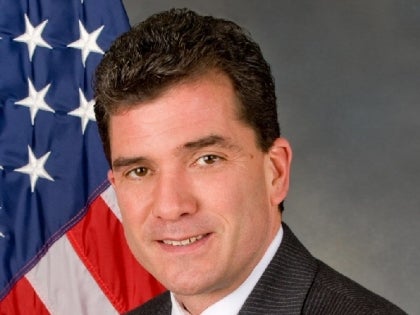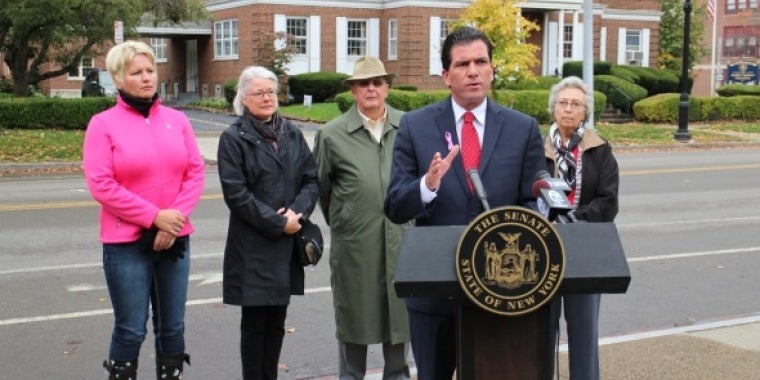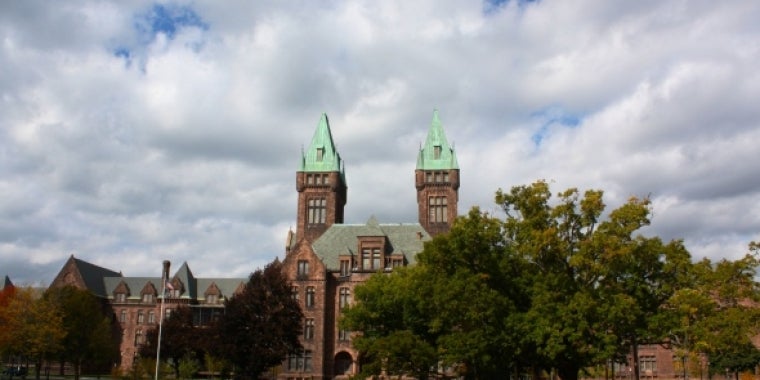
Senator Grisanti and Advocates Urge Lawmakers to Continue New York State Multiple Sclerosis Registry
Mark Grisanti
March 15, 2013
-
ISSUE:
- Health

Senator Mark Grisanti (R, I-60), a member of the New York State Multiple Sclerosis Legislative Alliance in the New York State Senate, and supporters are advocating for continuation of The New York State Multiple Sclerosis Registry during MS Awareness Week.
"This is very personal to me, my brother Richard has MS and I know firsthand the struggles that MS patients go through. We must be able to detect the causes of MS at the earliest stage. In Western New York we have one of the highest populations of people who suffer from MS in the nation, that is a cause for immediate action and continuing to support and fund The New York State Multiple Sclerosis Registry," said Senator Grisanti.
The New York State Multiple Sclerosis Registry and Consortium began in 1996 and is comprised of 15 MS Centers across the state. These MS Centers contribute to the Registry and use the collected data. The Registry, based in the UB School of Medicine and Biomedical Sciences, includes records from almost 10,000 participants, representing approximately one third of the 30,000 people in our state who have this progressive disease. Consortium researchers from UB and the other major academic centers in the consortium depend on the use of NY State Registry data for their work.
Until 2012, Registry and Consortium costs received significant funding fromthe state. Changes in federal laws have significantly limited the support they can now provide. Therefore, the UB Department of Neurology, which maintains the Registry on behalf of the Consortium, is reaching out to lawmakers for funding to continue to study MS.
"MS costs New York State up to $2.5 billion a year in healthcare costs, lost wages and tax revenue," says Bianca Weinstock-Guttman, MD, UB professor of neurology and executive director of the NYS MS Registry. "And all that is being asked for is $1 million to continue the registry. The registry provides researchers like me and my colleagues at UB and across the state with an invaluable tool to learn who will best benefit from certain drugs and treatments, what is causing MS and, someday, how to prevent it".
Researchers in various units across UB have been collaborating for years in order to get a better understanding of the disease in order to develop better ways to diagnose and treat it; they say that the registry provides a critical real-world view of the disease and how patients experience it on a daily basis.
Researchers want to know, for example, if the high rates of MS in New York State are due to environmental causes. "The data supplied by the registry will allow us to study patterns and variations caused by exposure to air, water and other environmental factors throughout the state to see how those factors may affect the risk of developing MS and how patients experience it," says Murali Ramanathan, UB professor of pharmaceutical sciences and MS researcher.
Share this Article or Press Release
Newsroom
Go to Newsroom

